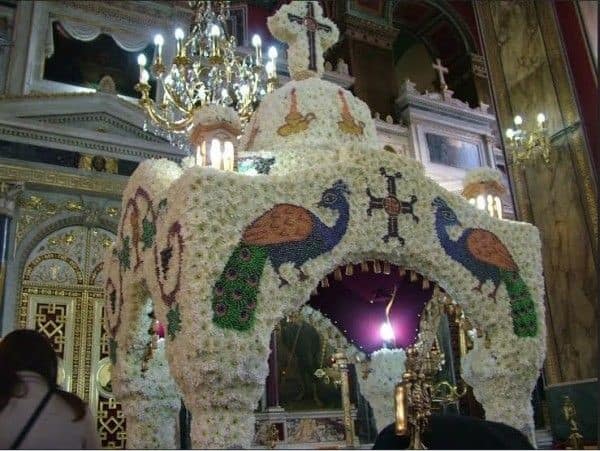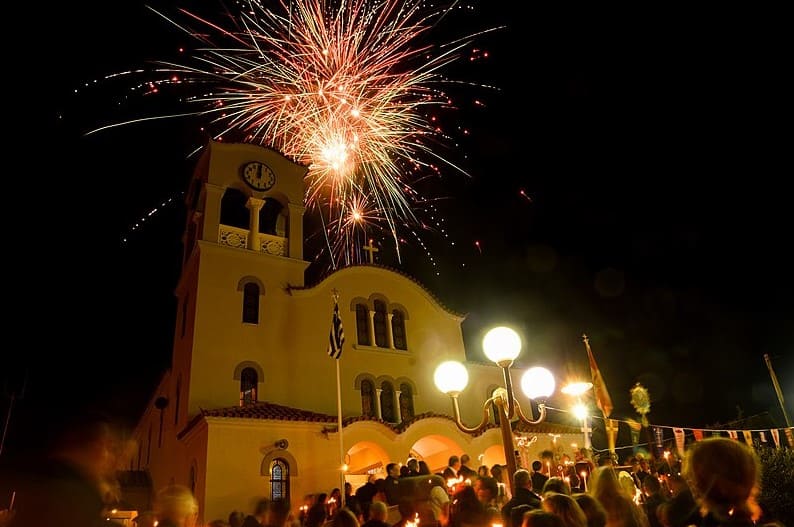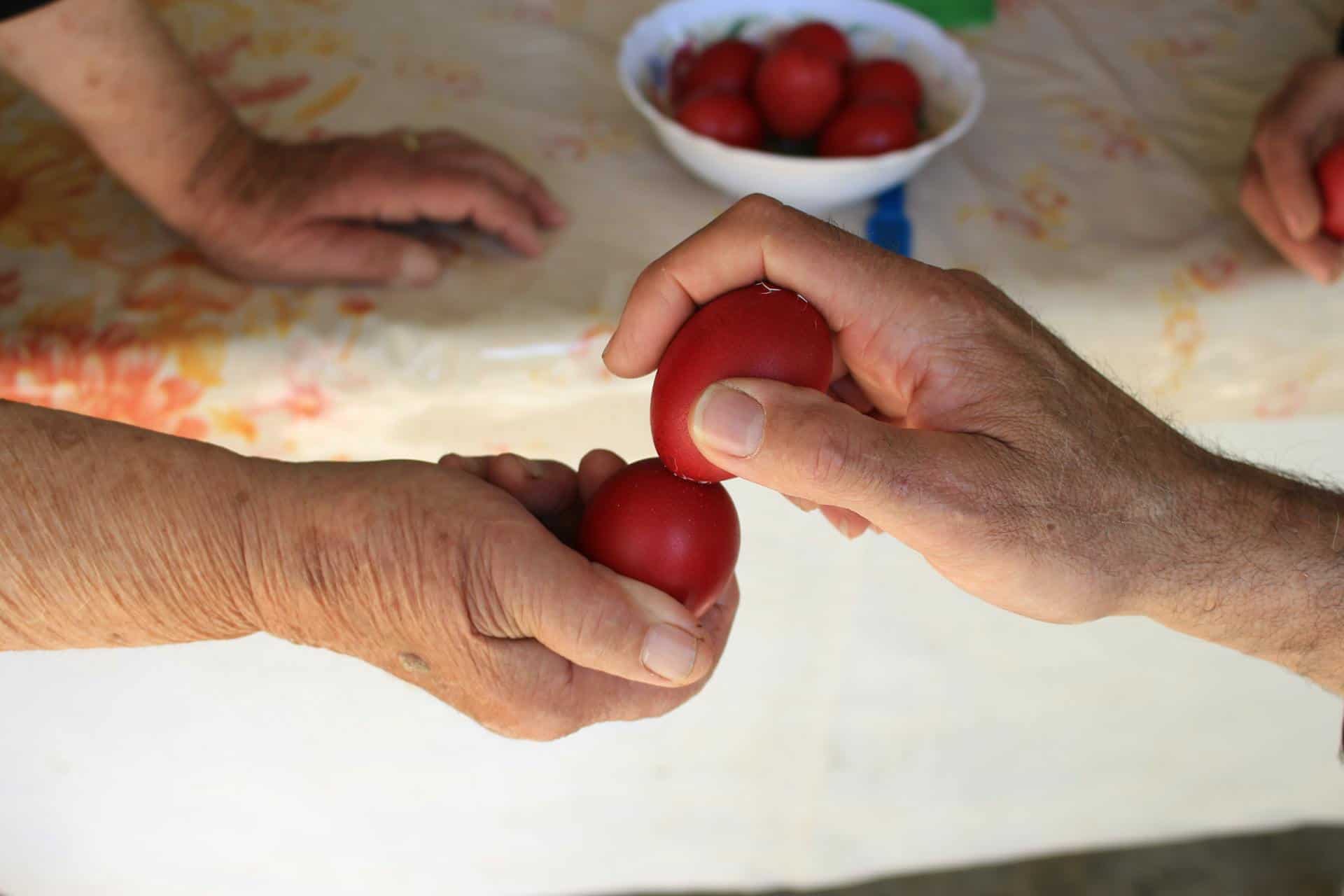A sideways look at economics
‘Christmas in the city and Easter in the village’ is the most probable response from a middle-aged Greek when asked about their plans for Easter (or indeed Christmas). It may seem boring to have the same plan year in, year out, but the truth of the matter is that you never change a winning combination. Almost all Greeks of my generation feel a sweet melancholy and nostalgia for our childhood Easters in the village.
Easter in the village is a ritual at the core of the Greek bourgeois family. The tradition was born following the first great ‘wave’ of internal migration to Athens and Thessaloniki (my home town), in the years following the brutal Greek civil war (1946 – 1949). The new residents of Greece’s largest cities were never ready to cut their ties with their birthplace and those they left behind in search of better fortune. The new Athenians or Thessalonians went through a problematic integration in the cities, giving a rise to a parallel identity syndrome. Even today, the question “Where are you from?” continues to be heard among Athenians or Thessalonians introducing themselves to each other. Even if you were born in the city, even if your parents were born in the city, most of those with some provincial ancestry feel the need to say where they are from.
My family falls into that category, although our ties with the countryside villages my mum and dad came from are weaker than most because only our maternal grandparents stayed behind. Nevertheless, my strongest memories of Easter are the ones that took place in the rural village somewhere in the Central Macedonia region of Greece with the grandparents and the extended family who would flock back for the occasion from all over the country or indeed the world. So, I thought I would share my memories of the nostalgic trip to Easter in the village, starting back in the 90s when I was a kid (now you can work out my age…).
As a kid, I looked forward to the Easter period and was particularly excited by its culmination in Holy Week. Not because I was religious, but because I was keen to see my grandparents and to do things that seemed to open a dimensional window, taking me to the countryside where the pace was massively slower than in a modern bustling city. It was a place where we played with other kids, completely forgetting about our usual obsessions with how to complete the next stage of 007 in Nintendo 64. It seemed like a different life, where everything was completed in a communal manner effortlessly. As kids all our activities or tasks were performed within large groups of siblings, cousins or just kids from the same village neighbourhood. For a few days of the year, we abstracted ourselves from the constraints of living in the city to have old-style fun.
We usually travelled to the village with our mum on the Wednesday of Holy Week, while Dad joined us after his work was finished late on Good Friday. I can remember as if it was yesterday our grandpa’s and granny’s smiley faces when they saw us stepping out of the bus, and then the hugs and the smooching. Much of Wednesday would be dedicated to cleaning the house – I couldn’t see why, since it was always clean, but equally one never questions Granny’s housekeeping schedule. There would be the occasional trip to the shops to get more supplies including my favourite grape must cookies. And that was when the challenge began: we were not allowed to touch the cookies or indeed eat anything fancy because we were fasting until Easter Sunday. According to my grandad that discipline, if you weren’t into religion too much, was teaching us to at least appreciate the humble grape must cookies more. As it turns out, I grew up to appreciate them a lot.
Thursday of Holy Week was the day we dyed the eggs, trying very carefully not to break any. Unlike the more colourful fashions that were taking hold in the cities, in the countryside red was the only option for Easter eggs because of a long-held Byzantine tradition. My granny’s only novelty was stickers with various designs such as rabbits and chickens, but that’s about as far as she would go. In the evening, we always attended the long church service that was basically a Roman/Byzantine-style dramatisation of Jesus’s last hours. At this service, everyone brought colourful bouquets of carnations to decorate the wooden epitaph, the symbolic funeral bier of Jesus that was to play an important role the following day.

The decorated epitaph
Good Friday was often cloudy because, as our granny used to tell us, on this day the sky cries – this seemed a bit too emotional from the sky, especially knowing that God had other plans for Jesus, but I knew better than to challenge that interpretation openly. The epitaph was ready in the centre of the church to be draped in a tapestry representing the ‘body’ of Christ, after the Deposition from the Cross service in the morning. For the rest of day, the parish bells rang mournfully and although everything was quieter as a sign of respect for the deceased, we kids were having fun. A large group of children that otherwise would not meet for a year were playing football together, or basketball or hide-and-seek, with the common factor between us our parents’ or grandparents’ common provincial ancestry. The afternoon was the culmination of the mourning, as the parish epitaph was processed around the village with choirs singing millennia-old hymns.
The Saturday of Holy Week usually zipped by quickly. My grandpa was completing the last of the shopping which usually entailed a trip to the butcher, given that the next day the fast (short-lived for our family, but 40 days long for others) was over. Then, late in the evening, we headed to the church’s courtyard for the last leg of the Resurrection service. And as the head priest sang the ‘Christ is Risen’ hymn at midnight the bells started ringing joyfully, while fireworks criss-crossed the sky and people exchanged good wishes. Even this was a chance for a little competition among families. The eggs dyed red on Wednesday were used as part of the wish exchange, and after you exchanged a wish with someone the eggs were drawn back and crashed against each other to determine who was luckier. In a small Greek village the competition could run its course for days, until there was one last person standing[1] with an unscathed red Easter egg. Of course, some of us cheated by having an egg with its contents carefully replaced with a type of cement using a syringe… all done by a cheeky yet meticulous grandad.

Fireworks at midnight as Easter Day begins
Easter Sunday. The big day had finally arrived, and you were super-excited if you were a kid. It’s not as if we didn’t play on the days before, but on Easter Sunday we were non-stop. In addition, we were given important tasks that made us feel ‘taller’: as the electric spit wasn’t that reliable back in the 90s, kids were going like clockwork, rotating the lamb over the heat. In the neighbourhood you could hear songs everywhere, dances were being set up early, and visits to each other’s houses were the norm. On Easter Sunday we also had our first ice cream, after being lectured not to eat one because ‘…you’ll get a sore throat’ and ‘…the ice creams in the freezer are last year’s’. But because it was Easter Sunday, we did eat our first ice cream of the year, which also meant that that the countdown for another staple in the Greek calendar had started ticking: summer was around the corner.

Crashing the Easter eggs against each other
Most of us have memories of Easter in some special place with our own people. You could say that Easter for Greeks is like what Christmas is for Britons: a family celebration and a gathering – perhaps a bit more rowdy, loud, and populous, but still a family occasion that offers an unparalleled opportunity for making unforgettable memories. I didn’t realise when I moved to the UK that the chance to walk down memory lane would present itself twice each year. Thanks to the Orthodox Church’s decision to carry on following the ‘old’ Julian calendar for Easter but the ‘new’ Gregorian calendar for everything else, British Easter and Greek Easter rarely coincide. I am not complaining — after all, who am I to challenge the mighty Church? — just glad to be doubly reminded of nice memories, even if I don’t get double the bank holidays.
[1] As we used to say, quoting the hero of the cult 1986 move Highlander, “There can be only one…”
More by this author